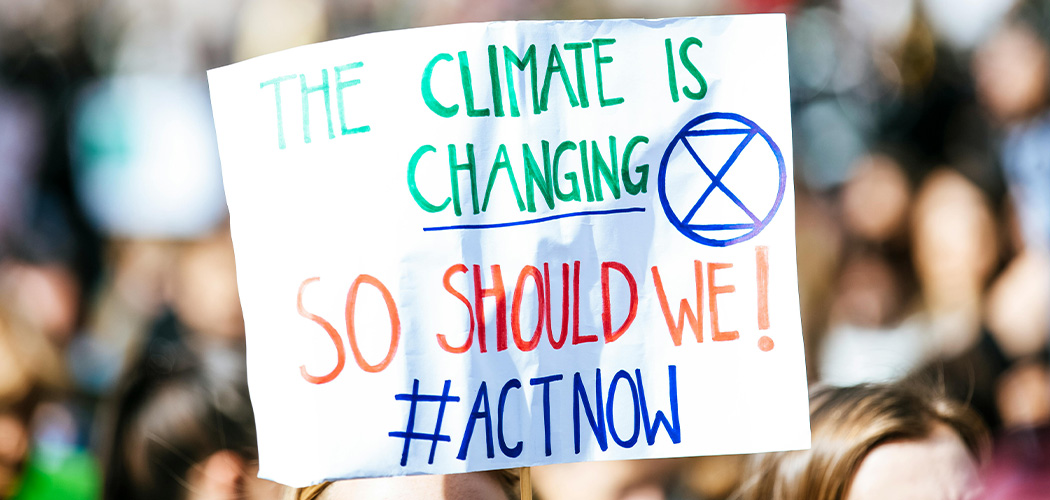Nurses and midwives have declared the climate crisis a health crisis with an immediate call to action this Global Climate Change Week (14-18 October).
The Planetary Health Collaborative for Nurses and Midwives declaration highlights the devastating impact climate change is having on human health, urging policymakers to adopt health in all policies and to act swiftly.
“As nurses and midwives, we recognise the deep connections between human health and the health of our planet. We declare that the climate crisis is a health crisis and social justice issue, and that it is our professional and moral duty to take action. The health of humanity depends on the health of our planet. It’s time for urgent, collective action.”
Held annually in October, Global Climate Change Week is aimed at raising awareness, inspiring behaviour change, and driving political transformation in relation to climate policy.
The Planetary Health Collaborative is a group of researchers and educators committed to addressing the challenges associated with planetary health and includes leading Australian nurse academics and clinicians.
Australia is already experiencing climate-driven extreme weather events including heat waves, floods, and bushfires; biodiversity loss; and pollution; which increase mortality, respiratory diseases, and mental health issues.
The worldwide call to action includes five pillars, and specifically asks nurses and midwives to:
- Educate themselves, colleagues and healthcare consumers, including on protective measures for extreme weather events, as well as identifying and communicating the signs of climate-related illnesses.
- Recognise and respond to the disproportional impact of climate change on vulnerable, marginalised and disadvantaged populations.
- Advocate for climate health in all policies, at local, national and global levels in public forums, policy briefs on climate change health impacts, and to join advocacy groups.
Nursing and public health researcher at the University of Southern Queensland Dr Aletha Ward said nurses must lead the way in the sector’s sustainability drive. “Nursing is the largest healthcare profession, making up about 60% of the healthcare workforce worldwide, and is often at the forefront of patient care.
“As trusted healthcare professionals, it is essential nurses use their skills, knowledge and advocacy to reduce emissions and lead by example, in both their professional and personal lives.”
In Australia, healthcare generates almost a tenth of the nation’s overall carbon emissions, through the procurement of goods and services, energy use, waste and transport. The scale of the problem reached unprecedented levels caused by the enormous increase of single-use plastic items used to fight COVID-19.
“The paradox is that while the healthcare sector is one of the biggest culprits of carbon emissions, it is responsible for looking after those most at risk of developing health problems due to climate change, such as heat stroke and respiratory illness.”
For more information, visit the Planetary Health Collaborative for Nurses and Midwives here








